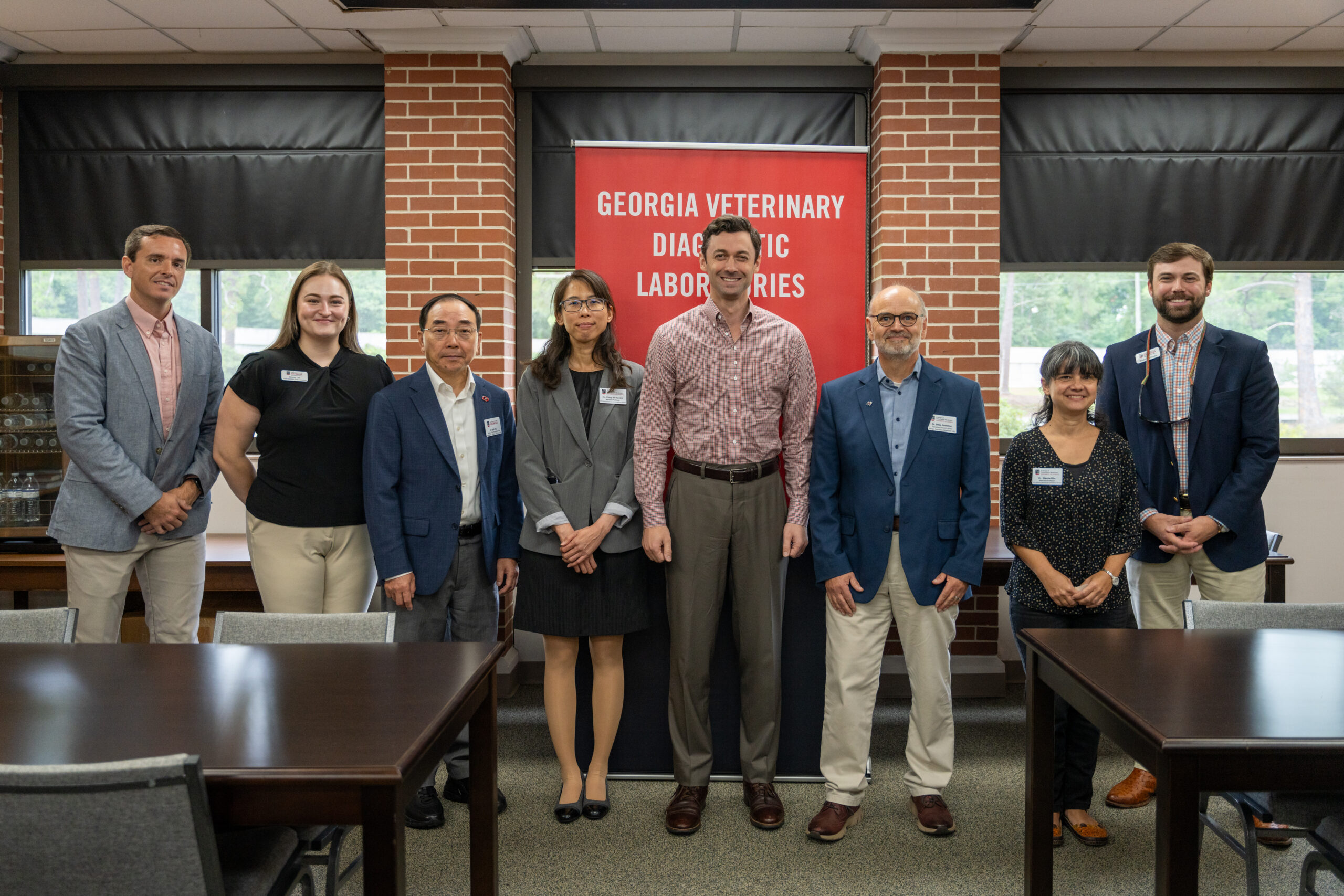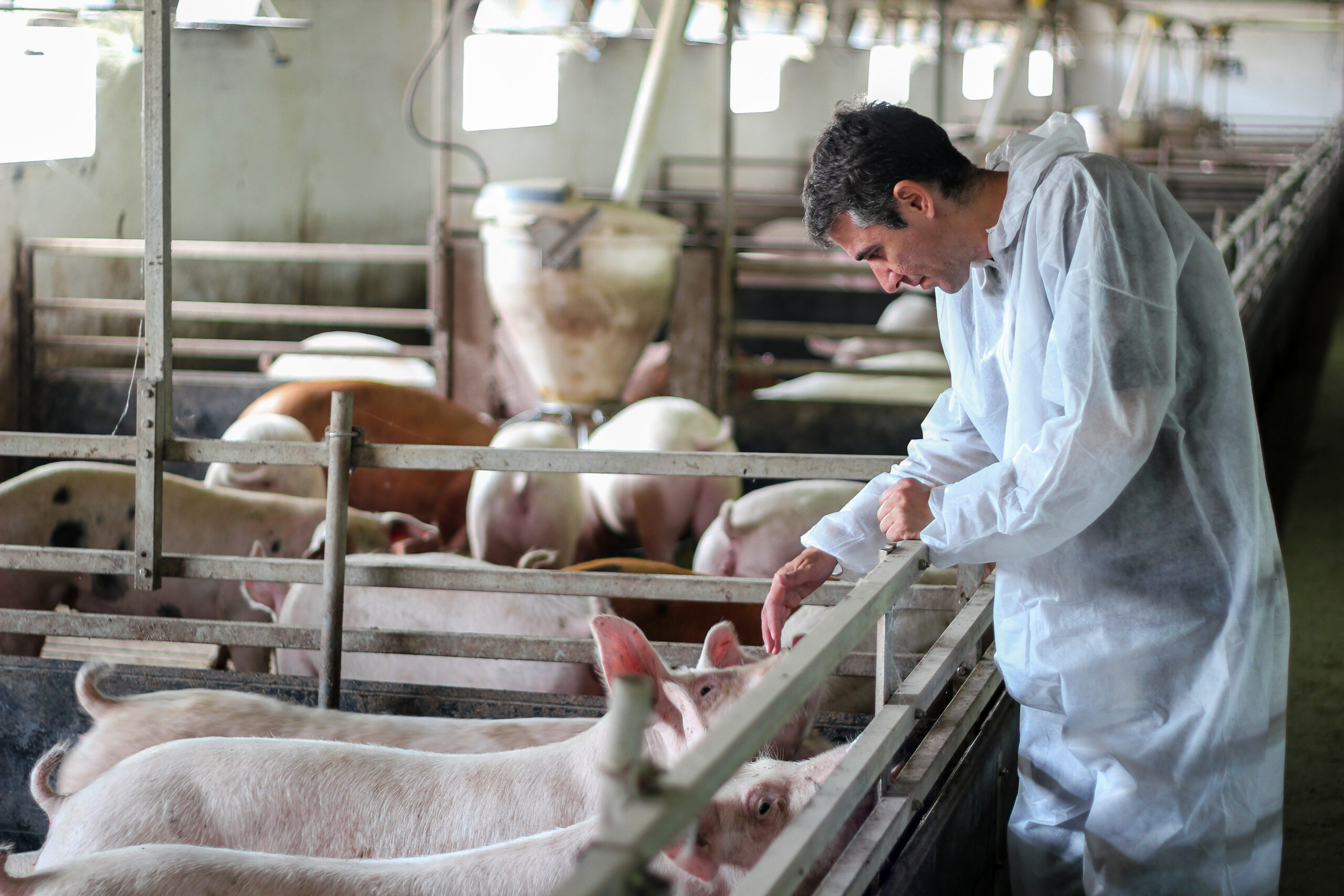
Educational programs also recruit rural students for veterinary careers
Georgia’s Veterinary Diagnostic Laboratories are the unsung heroes of the state’s multi-billion-dollar agriculture industry, working behind the scenes to ensure healthy livestock and a safe food supply for the public while also encouraging young people to pursue careers in the sciences.
Operating under the umbrella of the University of Georgia College of Veterinary Medicine, the labs have proven their ability to pivot and aid in human outbreaks such as Covid, all while maintaining the continuity of commitment to their primary customers.
With facilities strategically located in Athens and Tifton, the labs are positioned to serve producers and the agriculture industry throughout the state and beyond. Tasked primarily with animal diagnostic, surveillance, and regulatory testing for poultry companies, dairy producers, veterinarians and others, the labs have also been called in to assist in public health outbreaks.
Thanks to an investment backed by Sen. Jon Ossoff (D-Ga.), the Tifton lab will receive $1 million to better serve their stakeholders. These federal funds will go toward upgrading the 30-year-old equipment that is crucial for monitoring and preventing livestock disease outbreaks
When I learned that the veterinary diagnostic lab had a need for upgraded and new equipment, my team and I were able to build bipartisan consensus, bringing Republicans and Democrats together in the Senate, to support this appropriation."
Senator Jon Ossoff
U.S. Senator

Senator Ossoff, center, is pictured with members of UGA administration, faculty, and staff. Among those present are Provost Jack S. Hu, Interim Co-Directors of the Tifton lab Yung-Yi Mosley and Marcia Ilha, Executive Director of the Georgia Veterinary Diagnostic Laboratories (GVDLs) Jesse Hostetter, and members of UGA's Government Relations unit.
Efforts such as these are vital to enhancing the CVM’s continued commitment to rural engagement in Georgia by supporting the state’s farmers, food supply, and public health. Both the Athens and Tifton laboratories offer a wide range of testing services in various disciplines, including pathology, necropsy, molecular diagnostics, bacteriology, mycology, virology, and serology.
The laboratories partner with the Georgia Department of Natural Resources and the Georgia Department of Agriculture to protect against disease threats. This effort includes detection of endemic animal diseases that impact production, including digestive, respiratory, reproductive, and neurologic diseases that are already in the state. In addition, the GVDLs perform testing for zoonotic diseases such as rabies, brucellosis, and tuberculosis that impact animal production and threaten human health; and the Athens lab is one of only four laboratories in the nation that offer testing for bovine spongiform encephalitis (mad cow disease).
For Georgia, the GVDLs act as the primary line of defense against foreign animal diseases such as foot and mouth disease, highly pathogenic avian influenza (HPAI), African swine fever (ASF), and classical swine fever. These threats require constant vigilance at the nation’s borders and in country, especially in large food-producing states such as Georgia. For example, ASF, a viral hemorrhagic disease that has crippled the food supplies of Russia and China, is sitting off U.S. shores with animals in the Dominican Republic acting as reservoirs. For Georgia, this threat looms large due to a substantial feral swine population that could act as a reservoir of infection. Since the detection of ASF in the Dominican Republic in July 2021, the GVDLs have stepped up active ASF surveillance and preparations to identify this pathogen early, enabling Georgia’s best hope for threat eradication.

While ASF poses no threat to humans, the disease has the potential to devastate the US pork industry, as no vaccine or treatment currently exists. (APHIS)
The ongoing risk of new diseases is further demonstrated by the detection of the Asian Longhorned Tick in Georgia in October of 2021. An exotic pest that is endemic in the western Pacific, this insect causes “tick fever,” which can cause severe anemia, reduced growth, and potentially death in livestock. The laboratories will be watchful for this pest in our herds and work with state and federal agencies in the control efforts.
Most recently, both laboratories were activated to provide HPAI testing in birds. With the recent emergence of HPAI in dairy cattle, the laboratories are also actively involved in pre-movement testing of lactating cows for the detection of HPAI virus.
“Since a Federal Order went into effect at the end of April 2024 requiring HPAI testing of lactating dairy cows moving across state lines, the UGA Veterinary Diagnostic Labs in Tifton and Athens have tested more than 850 individual Georgia dairy cows, with no detections to date,” said Georgia’s State Veterinarian Dr. Janemarie Hennebelle.
This critical service has allowed Georgia dairy farmers to maintain continuity of business by providing timely results in support of movement and livestock exhibition, while protecting animal and public health both here in Georgia and nationwide.”
Dr. Janemarie Hennebelle
Georgia's State Veterinarian
Community outreach is another key mission of the labs. To that end, the GVDLs obtained Clinical Laboratory Improvement Amendment (CLIA) certification from the U.S. Department of Health and Human Services during the Covid pandemic in 2020. The GVDLs tested more than 140,000 patients for Covid with a rapid turnaround time serving the University community on the Athens campus with surveillance testing and rural communities in 20 counties in South Georgia with diagnostic testing to prevent the spread of the disease in Georgia.
The GVDLs also have a strong collaborative network with the state 4-H program, community colleges, universities and schools to offer educational programs that include two-hour lab tours, one-day workshops, semester-long internships, and eight-week summer internships. These programs have helped students from middle school to college gain exposure to careers in veterinary medicine, with an emphasis on laboratory diagnostics, enabling underrepresented students from rural Georgia to consider careers in veterinary medicine and animal health.
The Tifton lab was recognized by INSIGHT Into Diversity magazine for its efforts to tackle a regional shortage of veterinarians by addressing the underrepresentation of rural students in veterinary schools. The laboratory collaborates with institutions such as Abraham Baldwin Agricultural College and Valdosta State University to provide career advice and veterinary school application workshops designed for 4-H, undergraduate and veterinary technology students.
Dr. Angie McDaniel, a clinical associate professor and food animal veterinarian at the Tifton lab, teaches students during a career pathways workshop. For many students in South Georgia's rural school systems, programs like those hosted by TVDIL are crucial for introducing them to the field of veterinary medicine.